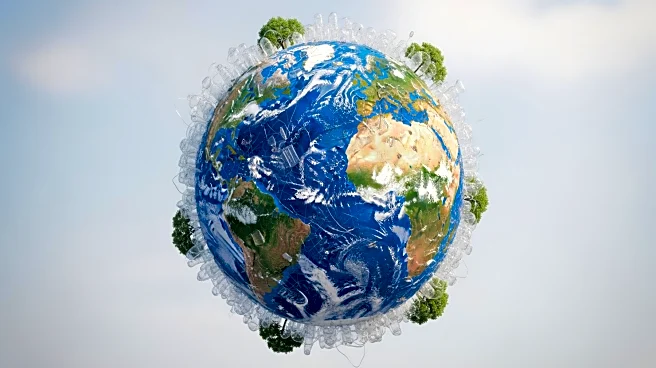What's Happening?
During the global plastics treaty negotiations at INC-4 in Ottawa, the Scientists' Coalition for an Effective Plastics Treaty emphasized the need for a comprehensive scope focused on the full life cycle
of plastics. The coalition, consisting of independent scientific experts, is actively contributing to the treaty process by providing summaries and interpretations of scientific knowledge. The University of Waterloo participated as an official observer, highlighting the importance of scientific input in the negotiations. The discussions covered various issues, including primary plastic polymer production cuts, problematic plastic products, and chemicals of concern.
Why It's Important?
The coalition's involvement is crucial as scientific research has historically informed policy responses to plastic pollution. The treaty aims to address the full life cycle of plastics, from extraction to disposal, ensuring that environmental, economic, and social impacts are considered. The coalition's efforts to correct misinformation and provide real-time scientific advice are vital for developing a strong and effective treaty. The scientific community's engagement underscores the importance of evidence-based decision-making in addressing the global plastic pollution crisis.
What's Next?
The treaty negotiations are set to continue, with final discussions scheduled for November 2024 in Busan, South Korea. The coalition's role in providing scientific insights will be critical as negotiators finalize the treaty's details. The focus on the chemical composition of plastics and their impact on recycling efforts will likely be a key area of discussion. The coalition's advocacy for transparency and better management of chemicals in plastics aims to support safety, sustainability, and necessity in plastic production.
Beyond the Headlines
The coalition's work highlights the broader implications of plastic pollution, including its impact on human health and social inequities. The treaty negotiations offer an opportunity to address these issues comprehensively, promoting sustainable solutions that consider environmental, societal, and economic consequences. The coalition's emphasis on independent science aims to ensure that the treaty not only addresses environmental concerns but also promotes social justice and economic sustainability.











